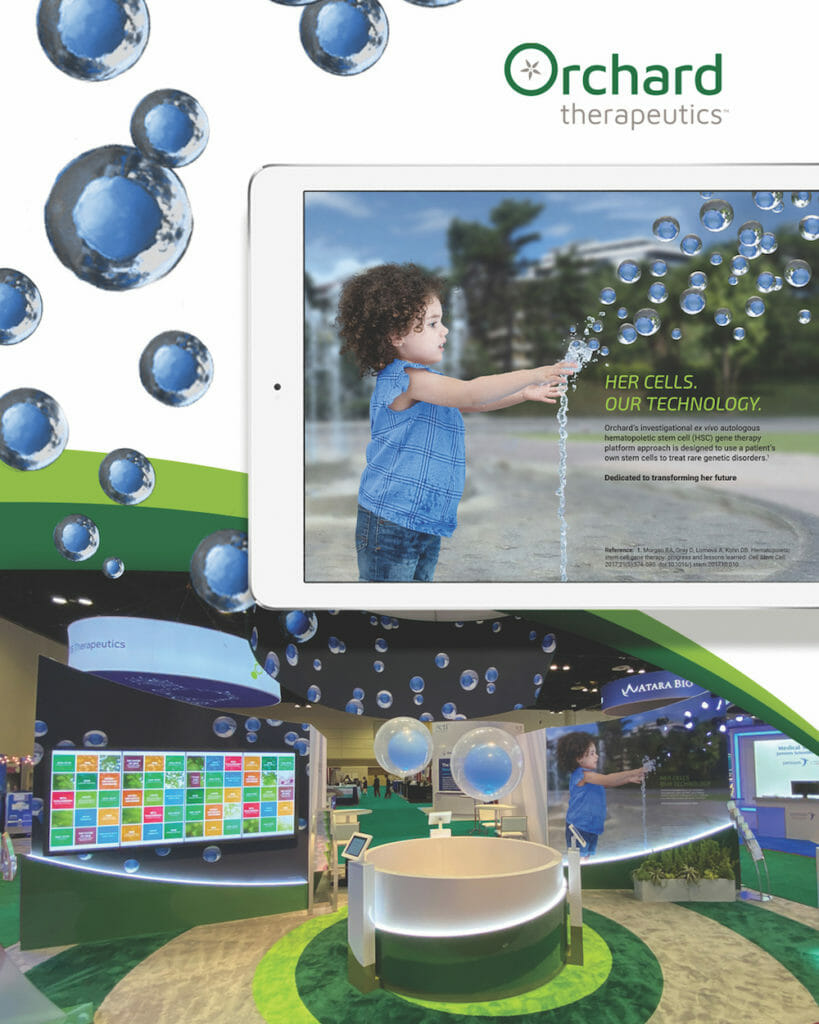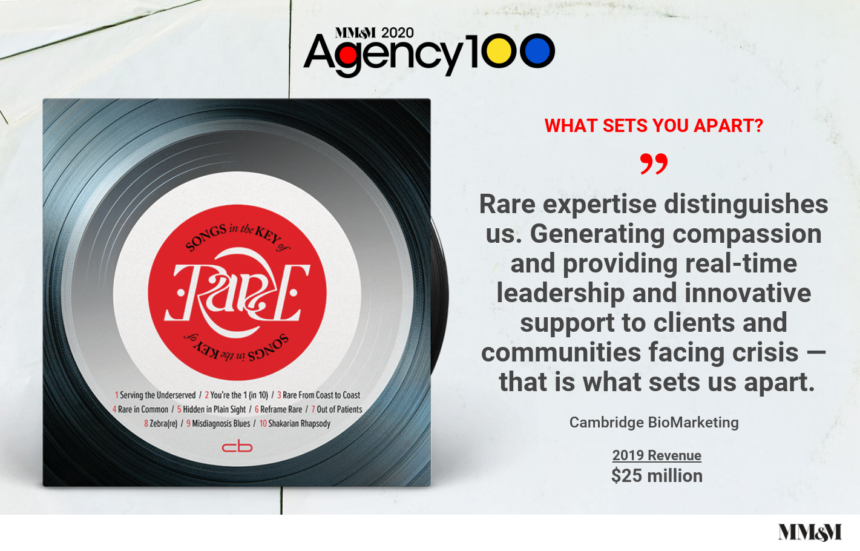When Ben Beckley joined Cambridge BioMarketing as president last August, he knew that his new employer had long since made a name for itself in the realm of rare disease. But half a year into his tenure, he defines the company and its mission slightly differently.
“We’re the only agency dedicated to serving underserved patient populations,” he says.
That taxonomic expansion is purposeful and describes a broader approach for Cambridge BioMarketing: focusing on patients who have been underserved by pharma, but who aren’t necessarily dealing with rare disease. Take the example of the firm’s work in ALS, on the newly won account for Amylyx’s AMX0035.
“The idea is to expand our thinking a little bit and leverage our heritage and knowledge of those rare disease patients,” Beckley explains.
There are easier segments in which to work, with Beckley noting that in 2018 only 17% of FDA submissions in the rare-disease category were approved. That said, in 2019 the agency managed to add assignments on about a dozen rare conditions, including work from Sanofi, Mallinckrodt, Kyowa Kirin and Spark Therapeutics.

Beckley points to the emotional component of working with this type of patient. People living with conditions such as Hunter syndrome, Pompe disease and mucopolysaccharidosis type 6 are not only underserved by pharma, but their stories aren’t often told, either. That allows Cambridge to craft a lexicon for HCPs — who may not have read about the disease since medical school — and for patients themselves.
“It feels so much different, because you’ve never met these types of patients before and you didn’t know the journey they’re going through,” Beckley says.
He cites an awareness campaign the agency engineered for immigrants living in the U.S. under the Deferred Action for Childhood Arrivals program. It came about after Isabel Bueso, a Guatemalan activist with Maroteaux-Lamy syndrome, was threatened with deportation, which would cut her off from the life-sustaining medicine she’s only able to get in the U.S. — a product that a senior Cambridge leader helped bring to market in a previous role.
Beckley reports that Cambridge BioMarketing’s revenue is ticking up in 2020, with the company set to launch a product that taps into client-supplied data to help identify patients who may have undiagnosed rare diseases. But most of all, he’s happy to be on the other side of a turbulent period that “could have ripped the agency apart.”
Despite those turbulent times, 2019 revenue nudged forward to $25 million from 2018’s $24 million, and staff size increased from 108 to 110 full-timers. But Beckley says last year’s numbers don’t tell the whole story, which included an office move and the departures of agency president Maureen Franco and heads of the agency’s creative, medical, operations and finance departments.
“The amount of change that people have felt this year was more than I think any agency should feel,” Beckley says. “Being on the back end of that, with the ship being stable and having growth and new clients and feeling good even in the light of the pandemic, is good to be able to say.”
The best marketing we saw in 2019…
A specialty pharmacy video on the Dupixent My Way website. Working in rare diseases, almost all the products we work on require the use of a specialty pharmacy. The video Dupixent did to describe the process was about the clearest I have ever seen. — Ben Beckley
From the June 01, 2020 Issue of MM+M - Medical Marketing and Media







